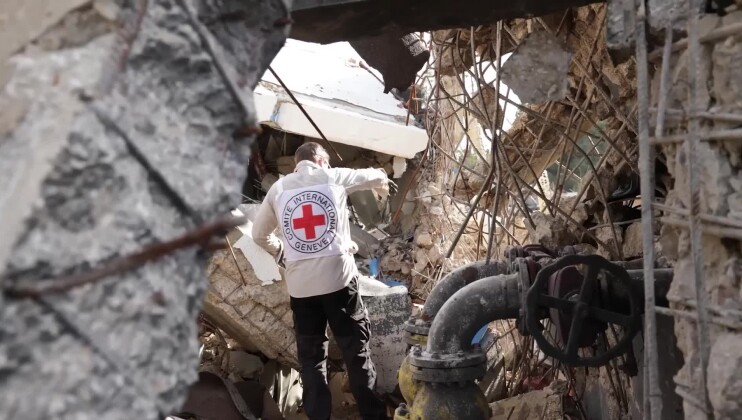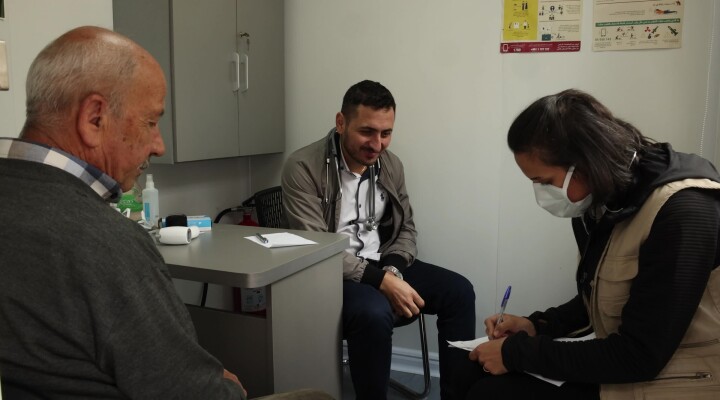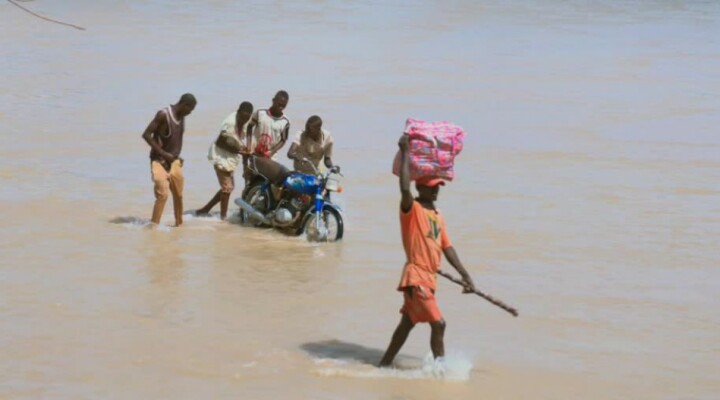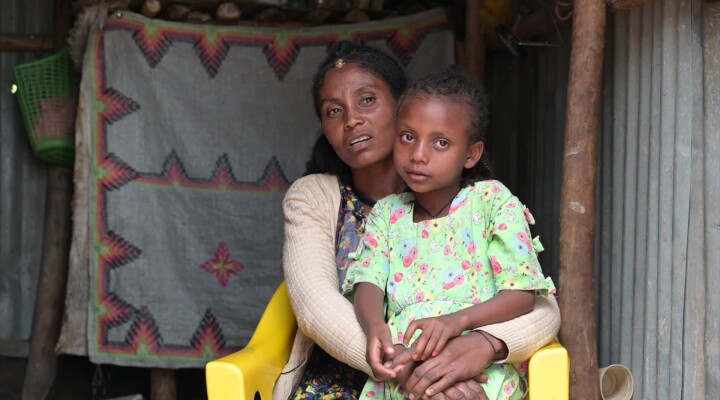Rare aerial footage shows unprecedented levels of suffering in Iraq and Syria
The president of the International Committee of the Red Cross (ICRC), Peter Maurer, says that levels of suffering in Syria and Iraq have reached unprecedented levels.
“Hundreds of thousands killed; millions on the move; families torn apart,” states Maurer. “Even as Ramadan comes to an end, many, many ordinary people are living in abject fear and terrifying uncertainty. A humanitarian catastrophe is unfolding.”
Rare aerial footage gathered by ICRC shows the once prosperous Ramadi in central Iraq now in tatters - a ghost town. Explosive remnants of war are scattered across the city and most people are too afraid to return to homes. It will take months, if not years, to make the city safe again and to rebuild homes and damaged water and electric systems.
In both Syria and Iraq, an estimated 10 million are internally displaced and hundreds of thousands of people have been killed.
As the holy month of Ramadan comes to an end, president Maurer, called on those people with influence over the conflict to show vision and courage and a respect for the fundamental value of human dignity.
Maurer says: “The people need leaders who believe in humanity; who protect, homes, schools and hospitals; who protect civilians and treat people they capture with respect. And we stand ready to talk to anyone - or to act as an intermediary so that more help, more assistance, can be delivered. And more people protected from violence.”
The Red Cross and Red Crescent Societies have been providing aid to people on all sides of the conflicts. The ICRC has helped provide clean drinking water and improved sanitation for more than 6 million Syrians. In Iraq, food, drinking water and medical assistance has been delivered to more than a million people.
Shotlist
Video One
Location: Various
Length: 6:57
Format: HD H264 mov
ICRC ref: AV506N
Ramadi, Iraq June 2016
0:00 Rare drone footage showing destruction in Ramadi
Switzerland, 1 July 2016
SOUNBITE, Peter Maurer, ICRC president (in English):
3:05 The suffering has reached unprecedented levels. Hundreds of thousands killed. Millions on the move. Families torn apart. Even as Ramadan comes to an end, many, many ordinary people are living in abject fear and terrifying uncertainty. A humanitarian catastrophe is unfolding. And, make no mistake, the situation is getting worse. For everyone.
Ramadi, Iraq June 2016
3:37 Various of damaged Ramadi educational hospital
4:30 Damaged ambulance
SOUNBITE, Peter Maurer, ICRC president (in English):
4:58 The people need leaders who believe in humanity. Who protect, homes, schools and hospitals. Who protect civilians and treat people they capture with respect. Who allow and facilitate neutral and impartial humanitarian help for those in need. All parties to armed conflict – and I mean ‘all parties’ – are bound by these norms and customs of war. Because they are the basis of our common humanity.
5:30 And we stand ready to talk to anyone - or to act as an intermediary - so that more help, more assistance, can be delivered. And more people protected from violence.
Syria
5:48 ICRC entering Al Rastan near Homs 21 April 2016
5:55 ICRC & Syrian Arab Red Crescent winter clothes distribution for children, Kishweh, Rural Damascus, November 2015
6:04 ICRC crossing check point in Moaddamiyeh, Syria 3 February 016
END 6:15
Video Two
ICRC ref: AV506N2
Switzerland, 1 July 2016
SOUNBITE, Peter Maurer, ICRC president (in English):
0:00 These are troubled times. Particularly for the people of Syria and Iraq. The suffering has reached unprecedented levels. Hundreds of thousands killed. Millions on the move. Families torn apart. Even as Ramadan comes to an end, many, many ordinary people are living in abject fear and terrifying uncertainty. A humanitarian catastrophe is unfolding. And, make no mistake, the situation is getting worse. For everyone. At times like this, leaders with vision and courage are needed. Leaders who recognise the common humanity in all of us. Who, above all else, show a respect for human dignity – the fundamental value that is common to all of mankind. The people need leaders who believe in humanity. Who protect, homes, schools and hospitals. Who protect civilians and treat people they capture with respect. Who allow and facilitate neutral and impartial humanitarian help for those in need. All parties to armed conflict – and I mean ‘all parties’ – are bound by these norms and customs of war. Because they are the basis of our common humanity. Red Cross and Red Crescent staff work in these conflict areas, in the name of this common humanity. They’re there to save lives; to help people. No matter what side they are on. Impartially. And neutrally. We’ve helped provide clean drinking water and improved sanitation for more than 6 million Syrians. We’ve provided - this year alone - food and basic aid for nearly five million people In Iraq, we’ve delivered food, drinking water, and medical assistance to more than a million people. We continue to visit detainees to ensure their well-being. And we stand ready to talk to anyone - or to act as an intermediary - so that more help, more assistance, can be delivered. And more people protected from violence. When the guns fall silent - and they will do one day – it’ll be that common respect for human dignity that will provide a way forward. And the chance for the healing process to begin.
END 2:34



